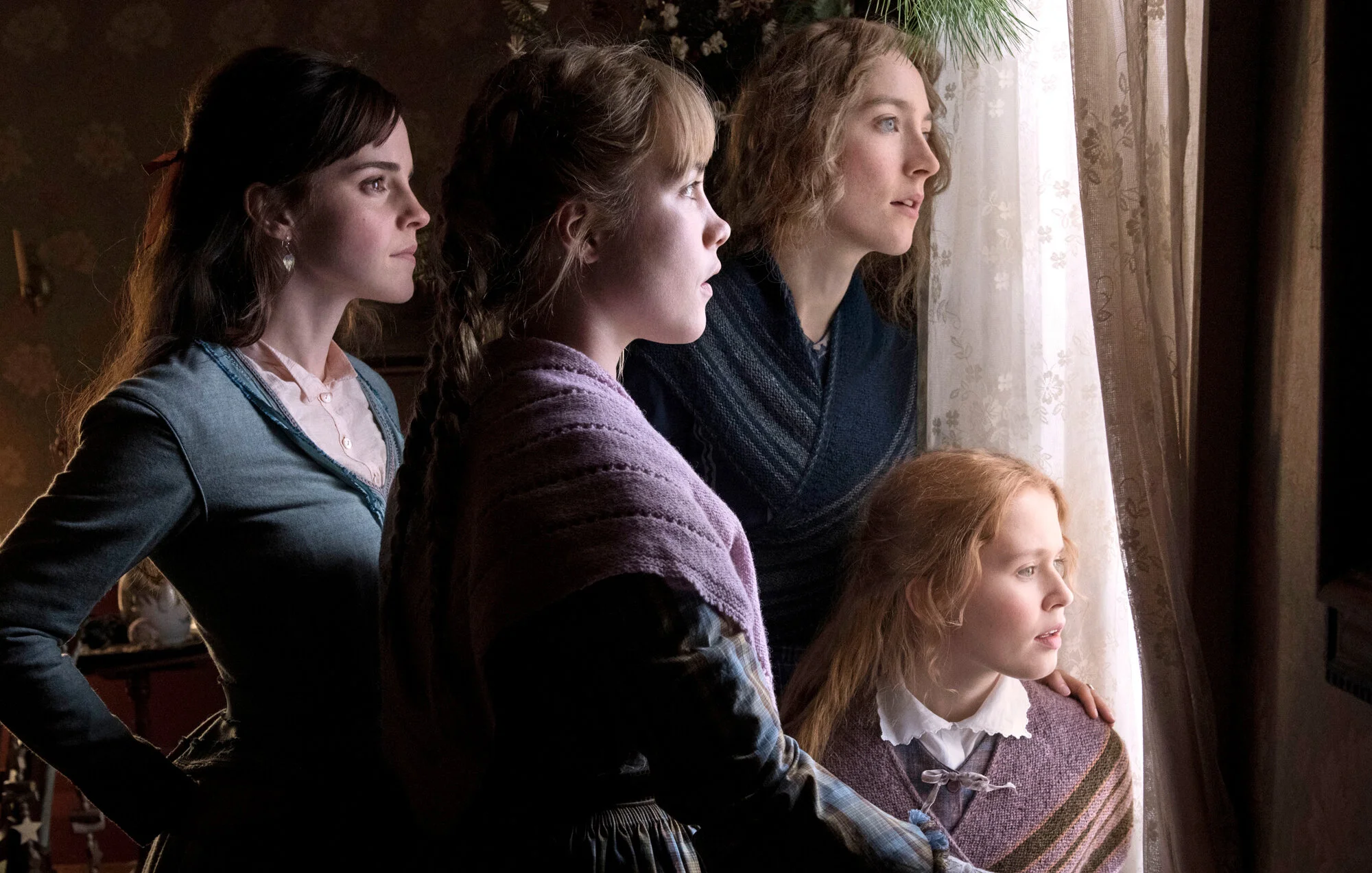
★★★★
Directed by Greta Gerwig
Starring - Saoirse Ronan, Emma Watson, Florence Pugh, Eliza Scanlen, Laura Dern, Timothee Chalamet, Meryl Streep
Little Women (2019)
Written by Dalton Welsh - April 21, 2020From director Greta Gerwig, coming off her 2017 critical darling “Lady Bird”, comes the sixth cinematic adaptation of Louisa May Alcott’s beloved book “Little Women”. Following the goings on of four sisters in 1868 Massachusetts seeing their journey from childhood to adulthood, experiencing love and sorrow as they must come to terms with what lies ahead in their future. Thanks to the masterful oversight of Gerwig we get to observe said journey in such an authentically beautiful way.
The film already feels like a classic that one might look upon with nostalgia, perhaps this can be accredited to the film’s heavy thematic attention to nostalgia. Jumping between present day and the past, it gives the feeling that these flashbacks are childhood memories reappearing as the characters think back on a simpler time. Thankfully Gerwig shows constraint to not force feed us through text appearing on the screen reading “a few years earlier” or use blatant expository dialogue, and despite this the non-linear plot never feels confused. The choice to construct the story in such a way makes for great engagement and pace, helping to maintain the audience’s attention.
This distinction of time is successfully achieved thanks to cinematographer Yorick Le Saux’s expert attention to colour. The warm hue of the past reflecting the joys and splendours of their childhood creates for a stark contrast to the blue coldness of the present. But while these periods differ so significantly, they are both composed of equally beautiful components. One can give much praise for this to the choice to shoot using film as opposed to digital. Giving the illustrious costume and production design of the film its true medium in which to shine. The grain of the filmstock works well in tandem with the 19th Century period of the film, giving further depth and life to the warmth of the candlelight and the snow-covered exteriors. The way the camera is able to capture the materials and colours of the period reminiscent of a great painting of the time. You can give partial thanks to Steven Spielberg for this who not only suggested, but practically begged Gerwig to utilise film once he caught word that she would be adapting the story to the screen.
But what the film is dependant upon to tie all of this together is the characters, and the respective actors who have been tasked to portray them, and they are nothing short of stellar. Each member of the cast brings such charisma to the screen, and the comradery and feeling of true sisterhood from the central four characters is palpable. While many film casts will say how well they got along on set, for “Little Women” you can feel a genuine sense of chemistry. They feel like a real family, bickering back and forth, laughing together, and caring for each other. It is the great care that the characters show for one another which is so infectious as the viewer finds themselves becoming deeply invested in the lives of these four sisters.
The two standouts however would have to be Saoirse Ronan as Jo and Florence Pugh as Amy. With Ronan displaying expertly the range of Jo’s journey from joy, whimsy, and passion, to devastation, cynicism, and rejection. Whilst Pugh gives genuine humanity to Amy as she grows from a mischievous child to a mature woman.
It is refreshing to see such a sweet, warm, and ultimately uplifting film. While one may say that at times it is bordering on saccharine, that would be doing a disservice to Gerwig and the casts ability to engage the audience with captivating drama and emotion. One moment the film fills you with a sense of childhood joy, the next emphatic sorrow for its characters, but never does it feel tonally inconsistent, conveying the masterful work of Gerwig’s adapted script.
Whilst watching the film it appears as a mere slice of life, simply observing the days in the life of these sisters, the film in the end reveals how throughout its runtime it has been building up to a satisfying and almost profound feeling of a clearly defined journey from beginning to bitter sweet end. Displaying how it was ultimately about growing up, developing some semblance of autonomy, and figuring out one’s place in the world. With all this Gerwig has truly shown the world how to successfully adapt a classic novel to the contemporary cinema scene.
